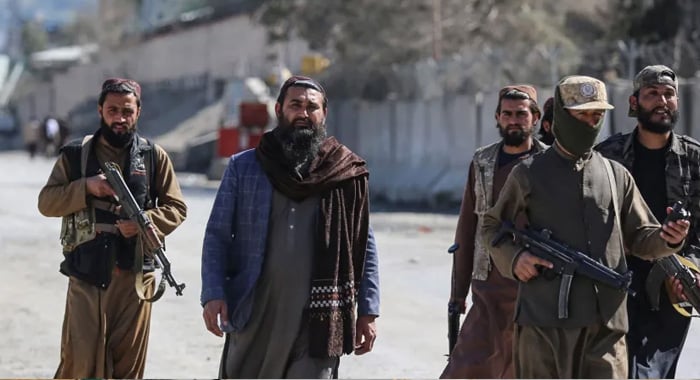Two decades after the 9/11 attacks, the Taliban remain a symbol of hardline rule and extremist ideology, yet the world remains starkly divided over how to classify and engage with the group that now controls Afghanistan. While sanctions remain in force under the United Nations and United States frameworks, countries are increasingly adopting conflicting approaches, exposing a deep fracture in international consensus.
At the core of the global framework is UN Security Council Resolution 1988, which imposes asset freezes, travel bans, and arms embargoes on Taliban-linked individuals and entities. These sanctions, distinct from those targeting al-Qaeda, are legally binding on all UN member states, including the United Kingdom and European Union countries, even though many stop short of formally designating the Taliban as a terrorist organisation.
The United States has taken a different route. Under Executive Order 13224, issued shortly after 9/11, the Taliban were classified as “Specially Designated Global Terrorists” a status that blocks their access to the international financial system and bans U.S. citizens from conducting transactions with them. However, the Taliban have never been listed as a Foreign Terrorist Organisation (FTO) by the U.S. State Department. Instead, Washington reserves that designation for closely affiliated groups such as the Haqqani Network and Tehreek-e-Taliban Pakistan (TTP), revealing the complex and overlapping web of militancy in the region.
In contrast, Australia and Canada have explicitly designated the Taliban as a terrorist organisation under their national laws. New Zealand, however, enforces the UN sanctions regime without issuing an independent listing. Recent developments in Russia have further complicated the global picture. Though the Taliban were designated a terrorist organisation in Russia in 2003, the country has shifted its policy significantly since the group seized power in Kabul in August 2021. In a landmark decision, Russia’s Supreme Court suspended the Taliban’s terrorist designation, a move publicly welcomed by the group. Despite the legal change, Russia’s Foreign Ministry insists that it continues to implement UN sanctions against Taliban officials. Notably, Moscow has accepted a Taliban-appointed ambassador and formally handed over Afghanistan’s embassy to the group steps that signal increasing engagement without full diplomatic recognition.
Following Russia’s lead, Kyrgyzstan has removed the Taliban from its list of banned organisations after an internal policy review. Other Central Asian countries, including Kazakhstan, are also reassessing their positions, reflecting growing regional alignment with Russia and China, both of which have intensified their diplomatic and economic contacts with the Taliban. India has taken a cautious approach, indicating that any formal recognition of the Taliban will be aligned with the broader consensus at the United Nations. However, Indian officials have held back channel talks with Taliban representatives, highlighting New Delhi’s pragmatic shift in safeguarding regional interests.
Though no country has officially recognised the Taliban as the legitimate government of Afghanistan, more than two dozen states including all six of Afghanistan’s neighbours—have allowed Taliban-appointed diplomats to take over Afghan embassies and consulates, quietly legitimising their presence on the world stage. The United Kingdom, while adhering to the UN sanctions regime and maintaining that the Taliban lack legitimacy, has adopted a limited engagement strategy focused on humanitarian coordination, counter terrorism, and human rights. Its dealings, conducted largely via its diplomatic mission in Qatar, are described by British officials as necessary yet non-endorsement of the regime.
This growing divide between legal designation and diplomatic necessity illustrates a global impasse: whether to isolate the Taliban as a terrorist entity or cautiously engage with them to ensure stability in a volatile region. Despite sustained international pressure and sanctions, the Taliban’s reassertion of power has forced governments to navigate a new reality one where values, security, and strategic interests often clash. The debate over formal recognition versus pragmatic engagement is no longer theoretical. It now defines the international community’s ability or inability to respond to Afghanistan’s evolving future.





